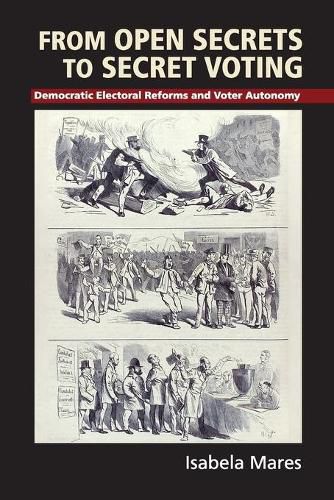Readings Newsletter
Become a Readings Member to make your shopping experience even easier.
Sign in or sign up for free!
You’re not far away from qualifying for FREE standard shipping within Australia
You’ve qualified for FREE standard shipping within Australia
The cart is loading…






The expansion of suffrage and the introduction of elections are momentous political changes that represent only the first steps in the process of democratization. In the absence of institutions that protect the electoral autonomy of voters against a range of actors who seek to influence voting decisions, political rights can be just hollow promises. This book examines the adoption of electoral reforms that protected the autonomy of voters during elections and sought to minimize undue electoral influences over decisions made at the ballot box. Empirically, it focuses on the adoption of reforms protecting electoral secrecy in Imperial Germany during the period between 1870 and 1912. Empirically, the book provides a micro-historical analysis of the democratization of electoral practices, by showing how changes in district level economic and political conditions contributed to the formation of an encompassing political coalition supporting the adoption of electoral reforms.
$9.00 standard shipping within Australia
FREE standard shipping within Australia for orders over $100.00
Express & International shipping calculated at checkout
The expansion of suffrage and the introduction of elections are momentous political changes that represent only the first steps in the process of democratization. In the absence of institutions that protect the electoral autonomy of voters against a range of actors who seek to influence voting decisions, political rights can be just hollow promises. This book examines the adoption of electoral reforms that protected the autonomy of voters during elections and sought to minimize undue electoral influences over decisions made at the ballot box. Empirically, it focuses on the adoption of reforms protecting electoral secrecy in Imperial Germany during the period between 1870 and 1912. Empirically, the book provides a micro-historical analysis of the democratization of electoral practices, by showing how changes in district level economic and political conditions contributed to the formation of an encompassing political coalition supporting the adoption of electoral reforms.